Abandonment is a nasty Sonofab*tch to deal with.
And if you’re anything like me, chances are that the first major abandonment you experienced only served as a catch-all net for any additional or perceived instances of it further down the line.
Your parent walked out and never returned. Net cast.
Your now lone parent has to take on a(nother) job that leaves them at home less. The abandonment net catches that.
Your childhood best friend heartlessly announces to you that someone else is their new bestie (ah, the innocent cruelty of childhood). The abandonment net catches that, too.
Your middle school sweetie broke up with you, only to be “dating” another person within days. Where’s that go? The abandonment net, of course.
And so on and so forth.
And just like nets in the ocean, there’s a significant amount of by-catch that falls prey to this trap so that even things like getting fired from a job you didn’t like can feel like abandonment, too.
That’s the nature of nets and by-catch. Things that aren’t supposed to, get caught up in the middle. A fish is a fish is a shark is a dolphin is a fish. And so it is, also, with our minds. And while one fish alone might weigh just a couple of pounds, as more and more accumulate, that net gets damn heavy.
Welcome to your now-adult mind. You’ve ensnared yet another memory or moment that might otherwise be enjoyable if it hadn’t got caught in your mess. You’ve essentially just turned a dolphin into f*cking tuna.
When are you going to stop this bullsh*t, we ask ourselves.
Let me tell you a story:
I have this beautiful relationship with the most patient man in the world. When we first started dating, I sent him this article that talked about how to love a person who is afraid you’re going to leave, and he’s referred to it at least a handful of times in our relationship.
But I still get triggered, and when I do, his actions or words or whatever get caught in my net. He no doubt feels the weight of it all crushing down on him, the line wrapping round his throat, and I know that’s not fair. I know that if I continue, I’m going to strangle the relationship.
And it’s not just him. Elements of myself get lost in this net when I fear abandonment will come in love, friendships, family, career, or society.
But in beginning to keep a “feelings dump” folder in the notes on my phone where I unleash and say the meanest, most hurtful of things “aloud” to myself (and usually about myself), I’ve come to notice a routine that helps me cut the line before it gets too tangled or causes injury to those involved. It involves giving myself a few reminders.
6 reminders for when our abandonment triggers strike:
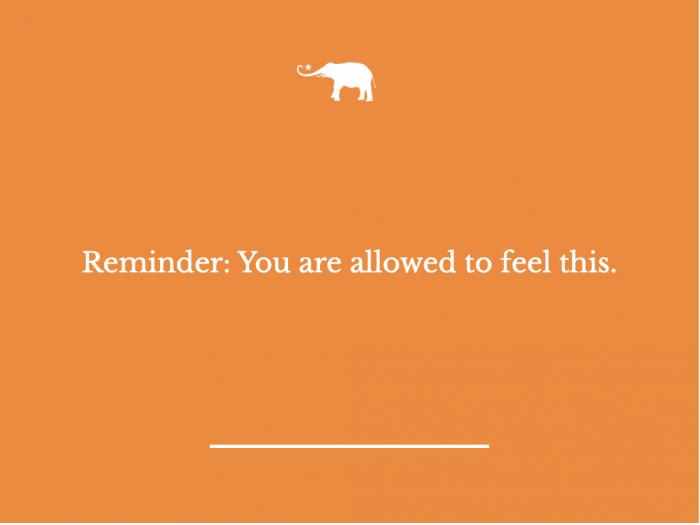
1. Yes. You are allowed to feel this.
Whatever fell into your abandonment net fell there because it seemed like a “fish.” Your net was once cast for survival purposes. You didn’t want to feel that hurt again, so you spread it nice and wide to catch whenever abandonment and its associated emotional injury might be coming. Until you allow yourself to feel it all, you’re not going to be able to effectively assess and manage yourself when you’re triggered, and you’ll keep trapping innocent thoughts, experiences, and people in your lines.
~
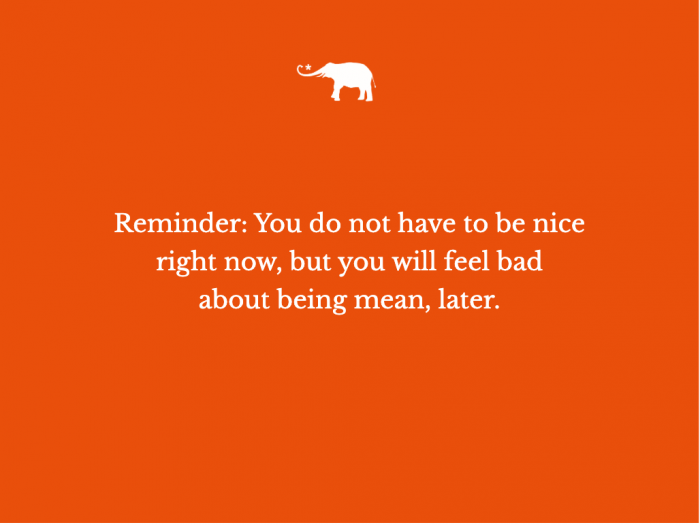
2. You do not have to be nice right now, but you will feel bad about being mean, later.
This is where the feelings dump folder comes in handy. When you’re triggered by someone’s actions, chances are they didn’t mean to hurt you. But if you’re like me, there can be an impulse to attack when we assume that the person who has pulled our trigger has done so with a blatant and intentional disregard for how we’d feel. Reminding myself how I’ll feel later if I blow my emotional load all over my person helps me to take a deep breath and at least try to pause.
Honestly? I suck at this right now, but I’m working hard at it. I just can’t seem to make it past that first insistent, “No, tell me what’s going on” that comes from my caring partner. But, every time I hold it to myself in order to avoid the blaming word vomit just one second longer, I consider that a win.
~
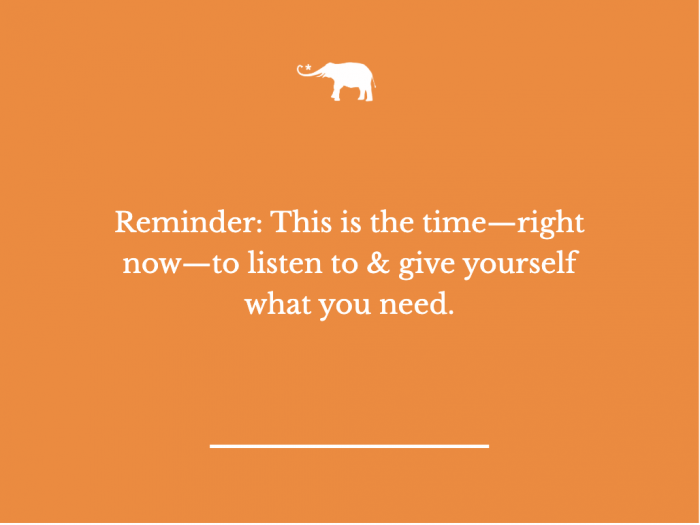
3. This is the time—right now—to listen to and give yourself what you need.
Often, when my abandonment is triggered, there’s an overwhelming desire to “run away.” I feel myself shrinking within, retracting. For the longest time, I’d try in these moments to just “work it out.” But there’s nothing to work out when there’s a large part of ourself deep within who is asking for space, or to, as a hurt child might want to do, “run away.” In these cases, I’ll let myself retreat to another room, and as you might imagine, physical separation can sometimes cause emotional pain when abandonment is triggered.
When I give into just that first detected need, my inner child begins to emerge because she senses a willing audience.
~
4. Your inner child is lashing out right now. Let your inner dialogue be as if to an actual child throwing this very same “temper tantrum.”
This has been the most uncomfortable thing to remind myself of, because it has meant needing to be ready to feel all the feels.
You know those moments when you were younger (or maybe even still to this day) and you’d be having a good cry and start repeating the same phrase to yourself? I’m pretty sure that’s the inner child trying to help you understand which barrel the trigger belonged to.
Sometimes where there should be a phrase, there’s just a scream. Either way, I keep listening and asking my inner self, “what else “until there’s just a quiet sniffling. Eventually, after sitting (alongside soggy couch cushion), I’ll start to realize what needs were not being met when I was triggered.
When we can see these things, we can untangle the knot between our current-day hurt and past injury, and when we’ve done that, there is the freedom and ability to better express our needs to ourselves and any other party involved.
PS: It is not stupid to cry about something you felt when you were six, or nine, or 17, and to feel it as freshly as you did back then.
~
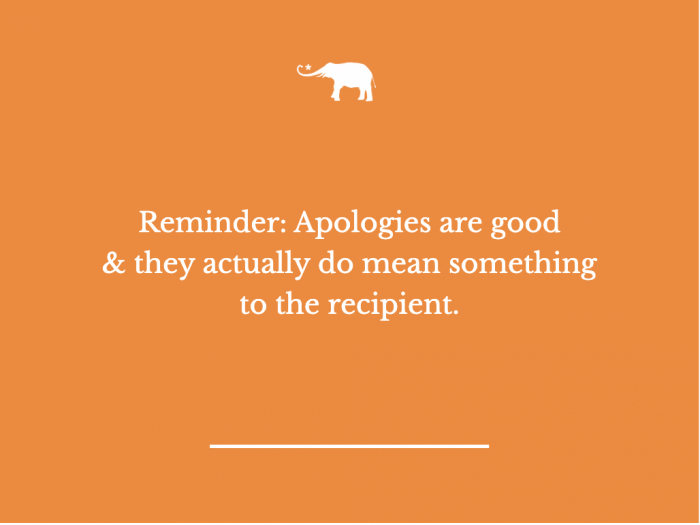
5. Reminder: Apologies are good and they actually do mean something to the recipient.
When we’re triggered and we’ve spewed our stuff all over someone, the apology might not look the same as our standard mea culpa. The apology I’m talking about isn’t just an I’m sorry and a snuggle after an outburst. It’s got a few more elements. It’s an acknowledgment of the reality of our situation, an ownership of my triggers and my reactive wrong-doing because of them, what I think I might need to do, and what we can do together to avoid or at least better deal with this trigger in the future.
It might not erase all the weight of any harsh words or blame placed, but it does remove some of it—and it also provides a miniature game plan for the future. Oftentimes, my partner is just happy to have the background knowledge and better understand where the whole thing came from. And I treasure each time he thanks me for that clarity.
~
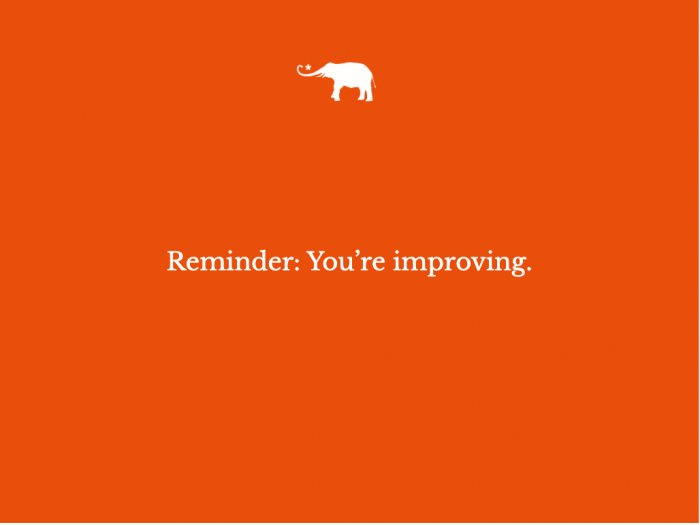
6. Reminder: You’re improving.
Simple as that. Every little bit counts.
Each time we go through this sort of an experience with presence, we remove a bit of our tangled net from our sea of emotions and free up that much more space for the wonders around us to be beautiful and magical instead of ugly and ominous. And I think that’s plenty enough motivation to do the hard work of healing, don’t you?
~
IMAGE: @GIULIAJROSA/INSTAGRAM
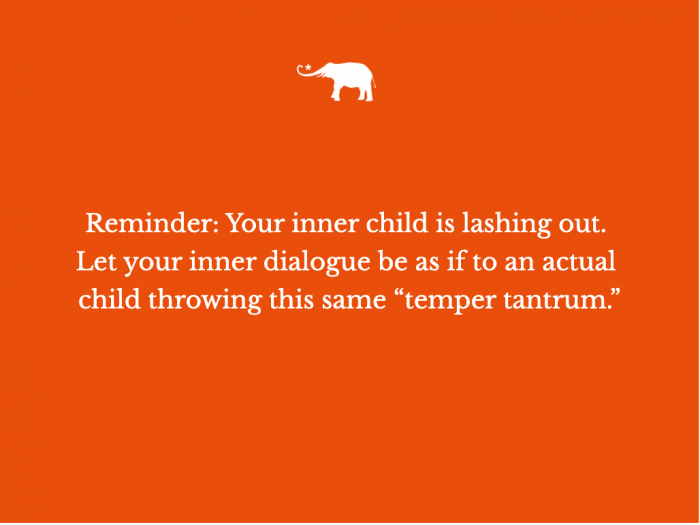

Read 14 comments and reply